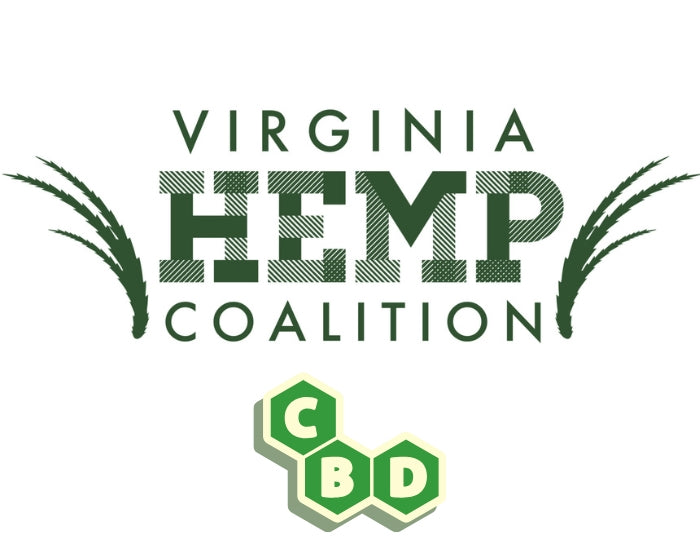This week Kentucky lawmakers and the Governor approved new guidelines for regulating delta-8 THC products.

As expected, the Kentucky State Legislature passed, and Governor Andy Beshear (D) signed a bill this week imposing new restrictions on products containing the controversial cannabinoid delta-8 THC. According to multiple news outlets, the bipartisan bill will require all delta-8 product offerings to be subject to stricter product testing, labeling and age-restriction requirements.
Kentucky, one of the nation's leading hemp producers, is one of the latest states attempting to address the issue of how to regulate the massive proliferation of hemp-derived intoxicating cannabinoids, like delta-8 THC, flooding many states.
Delta-8 is a naturally occurring isomer of the better-known delta-9 THC cannabinoid. Both variants occur naturally in the cannabis sativa plant, which contains hemp (the part containing less than 0.3% delta-9 THC) and marijuana (the part containing more than 0.3% delta-9 THC). Moreover, because the 2018 Farm Bill legalized hemp production in the U.S., all hemp-based products are now legal to manufacture and sell.
However, in recent years, certain creative and legally dubious companies have begun chemically manipulating the production process to produce a delta-8 variant with extremely potent intoxicating effects. Using a synthetic process involving hemp-derived CBD, these businesses have begun manufacturing predominantly unregulated delta-8 items, leading to numerous incidences of consumers becoming ill after ingesting the products. And in one terrible case, a Virginia toddler died after eating some delta-8 THC gummies.
As a result of this public health concern over delta-8, 14 states have banned all products containing the infamous cannabinoid, and several others have imposed significant sanctions on the worrisome variant. However, such a drastic and excessively punitive approach could devastate the still-blossoming hemp industry.
For example, Virginia lawmakers passed extremely tough restrictions on its hemp industry, including an outright ban on delta-8, last month that could severely hobble hemp farmers, manufacturers and retailers in the state. Advocacy groups have contacted Governor Youngkin, imploring him to hold off on signing the measure until vital amendments can be added to the bill. He is currently considering their request but appears staunchly entrenched in his position against all delta-8 products.
Then there is the case of Kentucky. The Bluegrass State is a notoriously conservative "Red" haven, with many of its leading political figures adamantly opposed to cannabis legalization of any kind. Nevertheless, despite its lack of progressive sentiment concerning marijuana, it is a passionately pro-hemp state with a flourishing hemp-based agricultural sector and an equally thriving hemp product industry. Additionally, Governor Beshear is a Democrat and a vocal proponent of the state's stake in the multi-faceted plant.
When the issue of delta-8 product safety became an issue for Beshear and Kentucky legislators, they looked to the state's judicial system to provide guidance. Following a Kentucky court ruling that affirmed the legal status of delta-8 THC and its accompanying products, the governor took action. However, instead of taking a drastic stance like an outright ban, Gov. Beshear issued an executive order imposing labeling and packaging requirements on all delta-8 products sold in the state.
This week the Kentucky legislature, following Gov. Beshear's lead, passed House Bill 544. Instead of prohibiting delta-8, the new law calls on state health officials to establish testing and labeling requirements for "contaminants" and all active ingredients in products containing delta-8 THC beginning August 1st, 2023. The new measure also prohibits the sale of delta-8 products to anyone under 21.
In a press conference following the bill's signing, Gov. Beshear said, "We did our best in an executive order, but we couldn't do many things in that executive order that you can via legislation. So, this really good bill codifies the executive order into law, but it does a lot (more) in establishing a regulatory structure."
"We did our best in an executive order, but we couldn't do many things in that executive order that you can via legislation. So, this really good bill codifies the executive order into law, but it does a lot (more) in establishing a regulatory structure."
- KY Governor Andy Beshear (D)
Industry advocates and stakeholders in Kentucky and around the nation have enthusiastically applauded this "common sense" approach to tackling these inevitable growing pains associated with a new and primarily misunderstood sector like hemp. After all, it has been less than five years since Congress passed the Farm Bill removing it from the Controlled Substances List ushering in a new and economically exciting chapter for this once mainstay agricultural foundation of America.
Every emerging industry faces unique and unexpected challenges early on in its development. However, imposing harsh sanctions and bans rarely solve the problems or helps the budding market mature safely and securely. Of course, the public's health and well-being should be the primary focus for governmental, corporate and healthcare leaders.
However, formulating innovative and mutually beneficial solutions should take equal precedence when addressing complex challenges like delta-8. Kentucky's approach appears to be a better path forward for hemp, and the rapidly growing community of farmers, businesses and consumers increasingly dependent on its continued success.






































